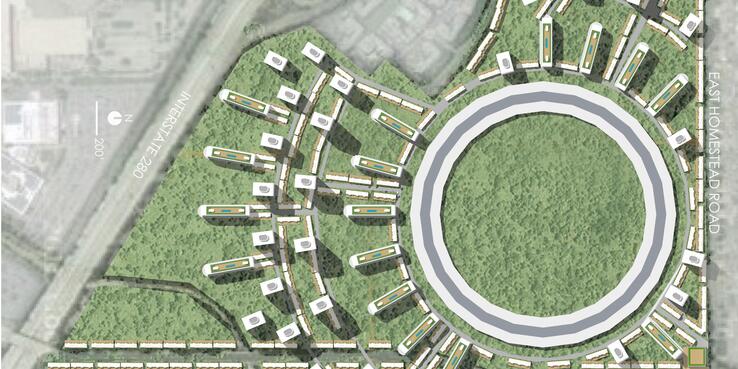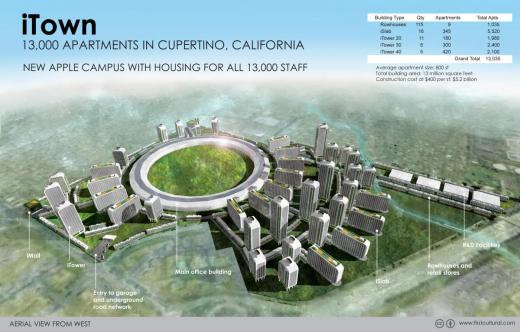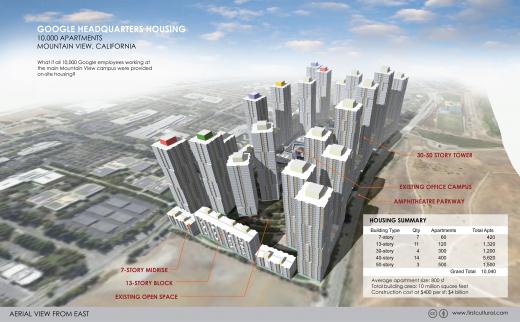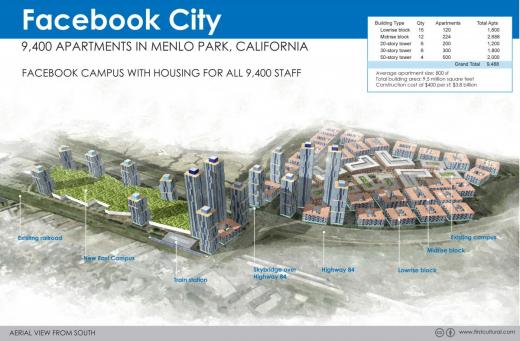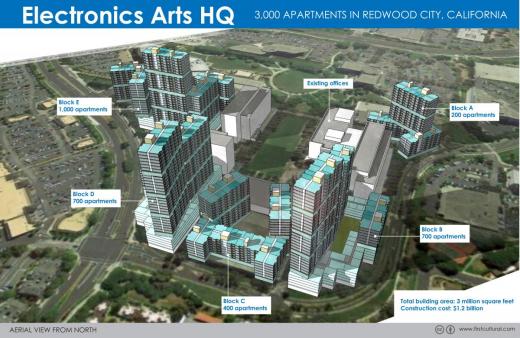The long tradition of “paper architecture” revels in speculative projects, theoretical explorations and unbuildable provocations. It is a tradition that some planners and policymakers — earnestly engaged in solving “real” problems — find exasperating. At their best, though, these fantasies have a startling power to shake up our thinking and reframe pressing issues.
Such is the case with Alfred Twu’s fantastical renderings of Silicon Valley corporate campuses, their parking lots packed with enough housing to accommodate their entire workforces. Why not address the Bay Area’s housing crisis — caused by a surge of new jobs without an equivalent increase in new housing — at its source?
Apple iTown
Cupertino, CA
13,000 employees / 13,000 apartments
These should not be mistaken for real proposals. Like all speculative exercises, they take enormous liberties with certain realities. To name a few: the existing zoning; local politics and sensibilities; the CEQA environmental review process; and the willingness of tech companies to invest heavily in something as long-term as housing when history teaches that tech giants are stunningly ephemeral.
Google Headquarters Housing
Mountain View, CA
10,000 employees / 10,000 apartments
On the other hand, Twu’s exercise holds rigorously to certain other realities, namely the actual footprints of tech campuses and the building types that would be required to deliver sufficient housing for all workers onsite. It’s this tension — between suspending disbelief on some questions and accepting the real constraints on others — that gives this sort of exploration its power.
Facebook City
Menlo Park, CA
9,400 employees / 9,400 apartments
This project is wired directly into some of our most vexing and timely planning issues: the backlash against “Google buses” and gentrification, regional employment and transportation patterns, NIMBYism, retrofitting suburbia and the future of the tech campus. By imagining these digital-age company towns, the project also asks which actors in our region are responsible for which externalities of our enviable economy.
Electronic Arts HQ
Redwood City, CA
3,000 employees / 3,000 apartments
So don’t panic, Mountain View — you’re not really staring down 50-story towers. But let's hope this fascinating provocation inspires a more serious regional conversation about jobs, housing, access and mobility.
